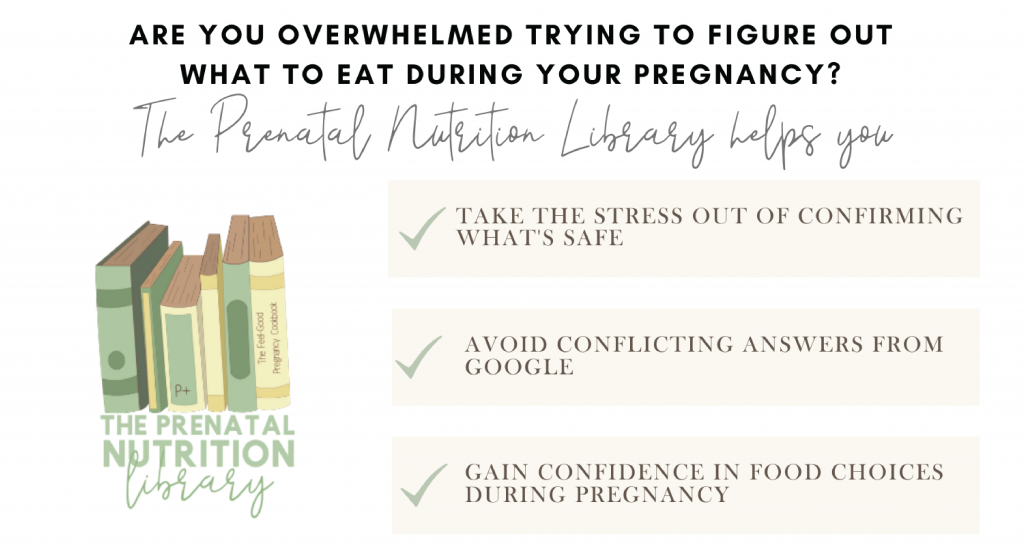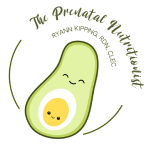
Can you enjoy fermented foods during pregnancy?
Fermented foods during pregnancy contain natural probiotics which help maintain our gut bacteria, boosts our immune system, fight against harmful bacteria, and can even affect our mental health.
Consuming fermented foods during pregnancy is beneficial for mom and baby for the reasons listed above. But also because researchers have linked food sources of probiotics to several positive pregnancy outcomes detailed below.
Fermented Foods during Pregnancy
1. They can reduce your risk of preterm delivery.
One of the most common unwanted pregnancy complications is preterm delivery. And moms diet is thought to play a big role in whether or not she delivers early. Myhre et al., studied eating fermented foods in relation to preterm delivery (2011).
Almost 19,000 women in Norway reported their intake of milk-based probiotic foods as none, low, or high between weeks 17-22 weeks of their pregnancies. Based on this data and whether or not these women had preterm deliveries the researchers established a significantly lower risk of preterm delivery amongst women who consumed high amounts of milk-based probiotic foods.
2. They can decrease the likelihood of your child developing eczema.
There have actually been a few studies on this topic! The one I am going to mention was done by Bertelsen et. al. in Norway with over 40,000 participants (2013).
Again, milk-based probiotic intake was assessed via a food frequency questionnaire in 3 levels of intake ranging from none to greater than 28.4 mL. The results showed that infants of women who consumed milk-based probiotics during their pregnancy had a relatively lower chance of developing eczema by age 6 months.
3. They can lower your risk of developing preeclampsia.
Preeclampsia is high blood pressure accompanied by protein in the urine and typically swelling of the hands and feet.
Maternal diet is thought to have a big effect on the development of this condition. Nordqvist et al. studied the timing of probiotic milk intake in relation to the incidence of preeclampsia and found that those who consumed probiotics later in their pregnancy had a lower chance of developing preeclampsia (2018).
Interesting enough this same study also looked at how intake of these same foods affected preterm delivery. And like the study described in reason one, the researchers found a decreased chance for those who consumed milk-based probiotics, but for intake earlier in pregnancy.
4. They may help maintain moms insulin levels.
Maintaining appropriate insulin levels and therefore blood glucose is extremely important in pregnancy. And even slight increases in blood glucose have been shown to have negative side effects during pregnancy.
A study by Asemi et al. measured the effects of daily high probiotic yogurt consumption on insulin levels in 70 women in the third trimester of pregnancy (2012).
The women ate either a conventional yogurt which contained 2 strains of bacteria or yogurt with 6 strains of bacteria including lactobacilli and bifidobacteria.
The group that ate the higher probiotic-rich yogurt had less insulin resistance. And better insulin levels in the third trimester of pregnancy. The researchers mention these results have also been demonstrated in animal models.
5. They may help reduce risk from toxin exposure.
Eliminating exposure to toxins entirely is nearly impossible in the world we live in today. But the good news is there are many ways in which our diet helps with this.
Bisanz et al. conducted a randomized control trial involving 60 pregnant women in their last two trimesters of pregnancy (2014). The women were selected because they were thought to have experienced high levels of toxin exposure due to geographic location.
One group received probiotic-containing yogurt and the other received milk. The group that consumed the yogurt showed lower levels of mercury and arsenic and more good bacteria.
Based on data from these five studies, it is easy to see that consuming fermented foods all throughout pregnancy is beneficial in more ways than one. Well, in at least five big ways.
So, you are probably wondering about probiotic supplements now.
The studies mentioned above are results from food not supplements. However, there is a decent amount of research backing the benefits of probiotic supplements for gut health as well. Especially if you don’t like fermented foods or want to go through the fermentation process at home.
My approach to nutrition and a prenatal diet is always high quality food first. Though since in general, food provides way more than a supplement can but both are safe during pregnancy.


Can you enjoy fermented foods during pregnancy?
Fermented foods during pregnancy contain natural probiotics which help maintain our gut bacteria, boosts our immune system, fight against harmful bacteria, and can even affect our mental health.
Consuming fermented foods during pregnancy is beneficial for mom and baby for the reasons listed above. But also because researchers have linked food sources of probiotics to several positive pregnancy outcomes detailed below.
Fermented Foods during Pregnancy
1. They can reduce your risk of preterm delivery.
One of the most common unwanted pregnancy complications is preterm delivery. And moms diet is thought to play a big role in whether or not she delivers early. Myhre et al., studied eating fermented foods in relation to preterm delivery (2011).
Almost 19,000 women in Norway reported their intake of milk-based probiotic foods as none, low, or high between weeks 17-22 weeks of their pregnancies. Based on this data and whether or not these women had preterm deliveries the researchers established a significantly lower risk of preterm delivery amongst women who consumed high amounts of milk-based probiotic foods.
2. They can decrease the likelihood of your child developing eczema.
There have actually been a few studies on this topic! The one I am going to mention was done by Bertelsen et. al. in Norway with over 40,000 participants (2013).
Again, milk-based probiotic intake was assessed via a food frequency questionnaire in 3 levels of intake ranging from none to greater than 28.4 mL. The results showed that infants of women who consumed milk-based probiotics during their pregnancy had a relatively lower chance of developing eczema by age 6 months.
3. They can lower your risk of developing preeclampsia.
Preeclampsia is high blood pressure accompanied by protein in the urine and typically swelling of the hands and feet.
Maternal diet is thought to have a big effect on the development of this condition. Nordqvist et al. studied the timing of probiotic milk intake in relation to the incidence of preeclampsia and found that those who consumed probiotics later in their pregnancy had a lower chance of developing preeclampsia (2018).
Interesting enough this same study also looked at how intake of these same foods affected preterm delivery. And like the study described in reason one, the researchers found a decreased chance for those who consumed milk-based probiotics, but for intake earlier in pregnancy.
4. They may help maintain moms insulin levels.
Maintaining appropriate insulin levels and therefore blood glucose is extremely important in pregnancy. And even slight increases in blood glucose have been shown to have negative side effects during pregnancy.
A study by Asemi et al. measured the effects of daily high probiotic yogurt consumption on insulin levels in 70 women in the third trimester of pregnancy (2012).
The women ate either a conventional yogurt which contained 2 strains of bacteria or yogurt with 6 strains of bacteria including lactobacilli and bifidobacteria.
The group that ate the higher probiotic-rich yogurt had less insulin resistance. And better insulin levels in the third trimester of pregnancy. The researchers mention these results have also been demonstrated in animal models.
5. They may help reduce risk from toxin exposure.
Eliminating exposure to toxins entirely is nearly impossible in the world we live in today. But the good news is there are many ways in which our diet helps with this.
Bisanz et al. conducted a randomized control trial involving 60 pregnant women in their last two trimesters of pregnancy (2014). The women were selected because they were thought to have experienced high levels of toxin exposure due to geographic location.
One group received probiotic-containing yogurt and the other received milk. The group that consumed the yogurt showed lower levels of mercury and arsenic and more good bacteria.
Based on data from these five studies, it is easy to see that consuming fermented foods all throughout pregnancy is beneficial in more ways than one. Well, in at least five big ways.
So, you are probably wondering about probiotic supplements now.
The studies mentioned above are results from food not supplements. However, there is a decent amount of research backing the benefits of probiotic supplements for gut health as well. Especially if you don’t like fermented foods or want to go through the fermentation process at home.
My approach to nutrition and a prenatal diet is always high quality food first. Though since in general, food provides way more than a supplement can but both are safe during pregnancy.







![What is sea moss? Is it safe for pregnancy?
Sea moss is a type of red seaweed or algae packed in red, yellow, or green.
It can be taken as a capsule, gel, or concentrated powder.
Though research is limited, and sea moss is definitely not required to have a healthy pregnancy, it can be a helpful source of iodine and potentially increase good gut bacteria.
Whole foods are always the priority over supplements and powders, but if you choose to incorporate sea moss, buying it from a reputable source is key! ‼️
Learn more about the details on this hot topic inside The Prenatal Nutrition Library!!
Here’s a look at what we’re covering: 👇
- what is sea moss?
- is sea moss safe for pregnancy?
- nutrient breakdown of sea moss
- does sea moss have benefits for fertility and pregnancy?
- what type of sea moss should I buy?
- how can I include sea moss in my diet during pregnancy?
✨ [Link in bio] to get started today! ✨](https://www.theprenatalnutritionist.com/wp-content/plugins/instagram-feed/img/placeholder.png)



